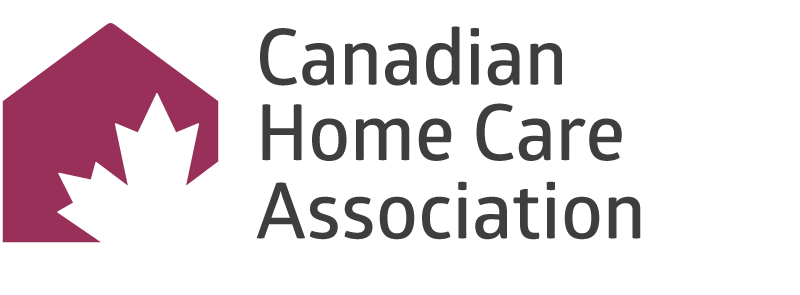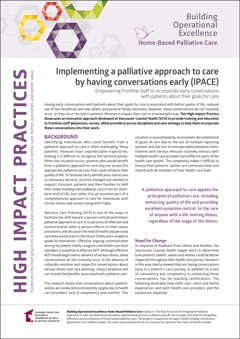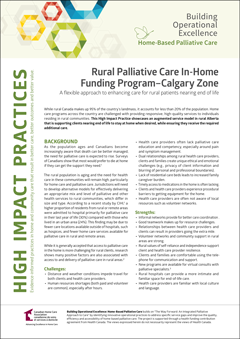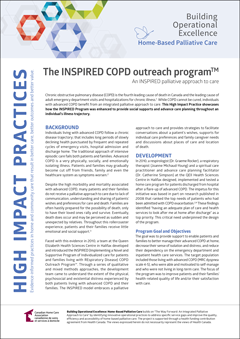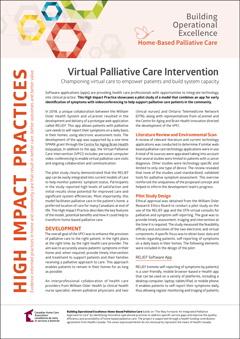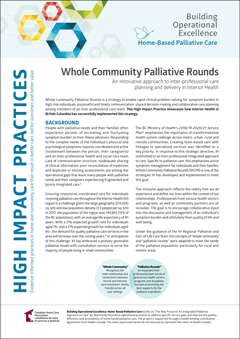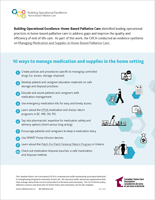Whole Community Palliative Rounding: An Innovative, Collaborative Approach for Rural BC – Population-based “Whole-Community Palliative Rounds” is used in rural communities to facilitate a process for inter-professional sharing of collective clinical expertise and knowledge to address the immediate palliative care needs of persons and families. Presentation PDF Watch video
Reducing the Silo Mentality – This innovation builds collaboration between established health care programs who traditionally work in silos, to provide seamless palliative care to a population of frail seniors that have not previously been able to access palliative care services. Presentation PDF Watch video
Integrated Palliative Care Approach in Home Care – An interdisciplinary, interdepartmental team model comprised of the client and their family/caregiver(s), palliative trained nurses and personal support workers (PSWs) that is strategically designed to encourage and promote communication. Presentation PDF Presentation and video
Spectrum Health Care’s Operational Excellence in MAiD – Build on three core perspectives – patient/caregiver, provider and system; this MAID (medical assistance in dying) program uses clear protocols, procures and rigorous training to support community nurses and team-based care. Presentation PDF
The Integration of Palliative Home Care Services and Acute Care Teams in the Provision of Medical Assistance in Dying in the Community – In 2016, the Champlain LHIN Palliative Home Care Program joined forces with The Ottawa Hospital (TOH) in order to provide MAiD to palliative patients in the community. Palliative home care services now support acute care physicians in offering MAiD in the community, resulting in care that is more patient-centered and with improved communication. Presentation PDF
The INSPIRED COPD Outreach Program™: Role of the Advance Care Planning Facilitator – As part of the INSPIRED COPD Outreach Program a trained advance care planning facilitator provides in home psychosocial/spiritual support, assisting patients/families in completing personal directives if desired. Presentation PDF Presentation and video
Redefining the Circle of Care – A quality improvement initiative that sought to refine and expand the circle of care so as to better meet the palliative needs of people. Presentation PDF Watch video
Provincial Palliative Care Consultation Phone Line – The toll-free Provincial Palliative Care Consultation Phone Line is a partnership between Doctors of BC and the Vancouver Community Home Hospice Palliative Care physicians. Presentation PDF Watch video
The New Normal: The Palliative Clinical Resource Nurse Role in Community Home Health – An approach to embedding palliative clinical resource nurses (PCRN) into home health sites and providing a vital link between acute care, residential care, hospice and community care. Presentation PDF Watch video
